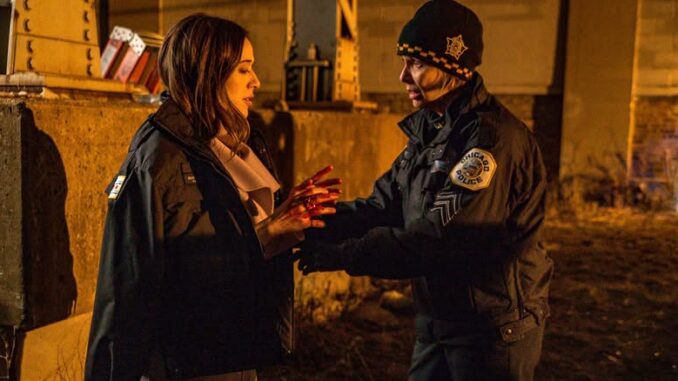
After more than a decade on NBC’s Chicago P.D., Kim Burgess has become much more than a fictional detective—she’s a cornerstone of the series. Played with grit and heart by Marina Squerciati, Burgess is now the longest-standing female cast member, having survived countless shootouts, heartbreaks, and personal tragedies. While her resilience is admirable, there’s a growing concern among fans and critics alike: Burgess’s journey has often been defined by loneliness, and it might be time for the show to give her the support she deserves.
Since her debut in Season 1, Burgess has been a fan favorite, thanks to her determination and emotional depth. She has endured brutal losses, including the trauma of losing a pregnancy, multiple near-death experiences, and the ongoing balancing act of being a single mother to her adopted daughter, Makayla. Yet, through it all, she remains fiercely loyal to the Intelligence Unit and determined to bring justice to Chicago’s streets.
But here lies the tension: while her male colleagues have often had long-term partners, strong friendships, or familial storylines to ground them, Burgess’s narrative has repeatedly leaned into solitude. Her on-again, off-again romance with Adam Ruzek has provided moments of connection, but even that has been riddled with heartbreak and instability. Fans have noticed the pattern—Burgess gives everything to her work, only to be left with little stability in her personal life.
This imbalance has sparked debate among the show’s loyal viewers. Should one of Chicago P.D.’s most beloved characters always carry the weight of loneliness to maintain dramatic tension? Or is it time to allow Burgess the same depth of relationships—romantic or otherwise—that her male counterparts enjoy? After all, complexity in storytelling doesn’t have to come at the cost of companionship.
It’s not that Burgess needs to be paired with someone romantically to be fulfilled. Her strength as a character comes from her independence, her determination to protect Makayla, and her ability to push through trauma. But Chicago P.D. has the opportunity to broaden her arc by giving her more consistent allies, whether through deepening female friendships on the force, creating mentorship dynamics, or building a healthier version of her partnership with Ruzek.
In many ways, Burgess’s journey mirrors the experiences of real women in high-stakes careers—dedicated, strong, but sometimes isolated by the demands of the job. That reflection of reality is valuable, but it also risks sending the message that women in power must sacrifice meaningful companionship for professional success.
As Chicago P.D. enters its twelfth season, Burgess deserves more than to carry the mantle of survival alone. She’s proven her strength time and time again; now it’s time for the writers to let her thrive not just as a cop, but as a whole person. Giving Kim Burgess richer connections would not only honor her longevity but also refresh the narrative of a show that has always been at its best when it balances the badge with the human heart.
